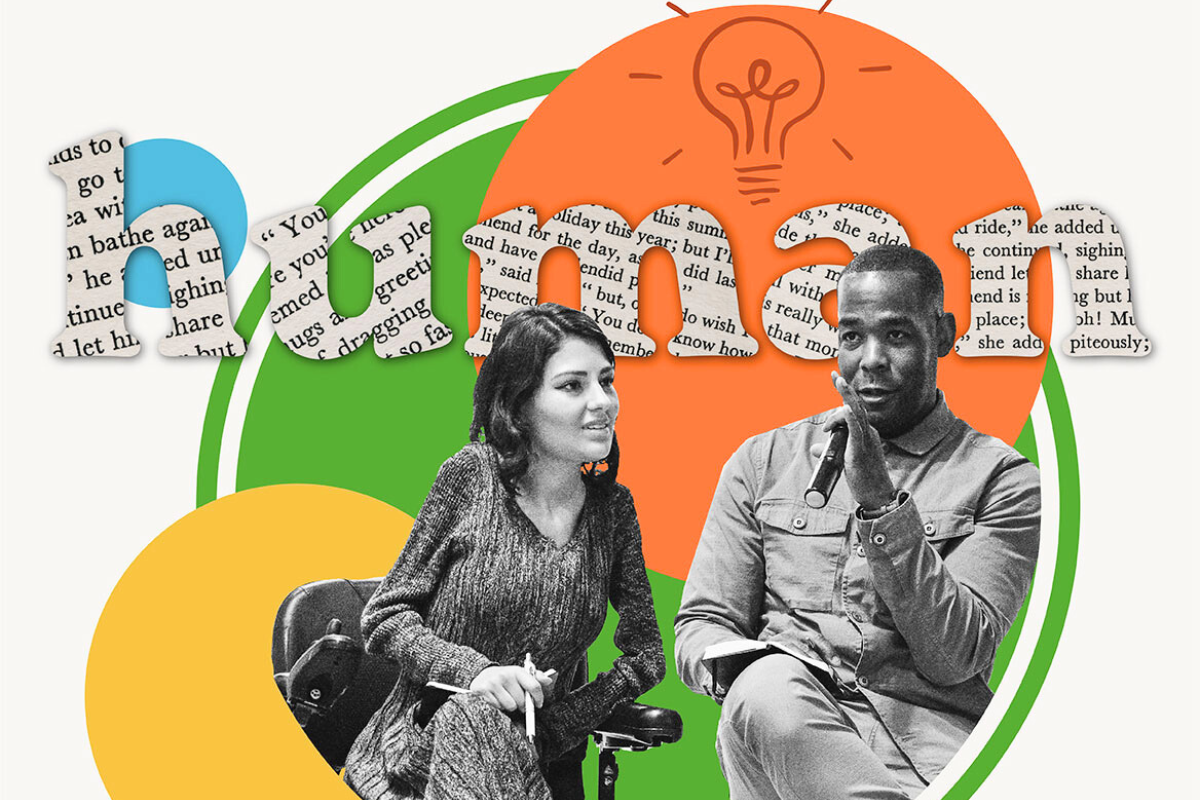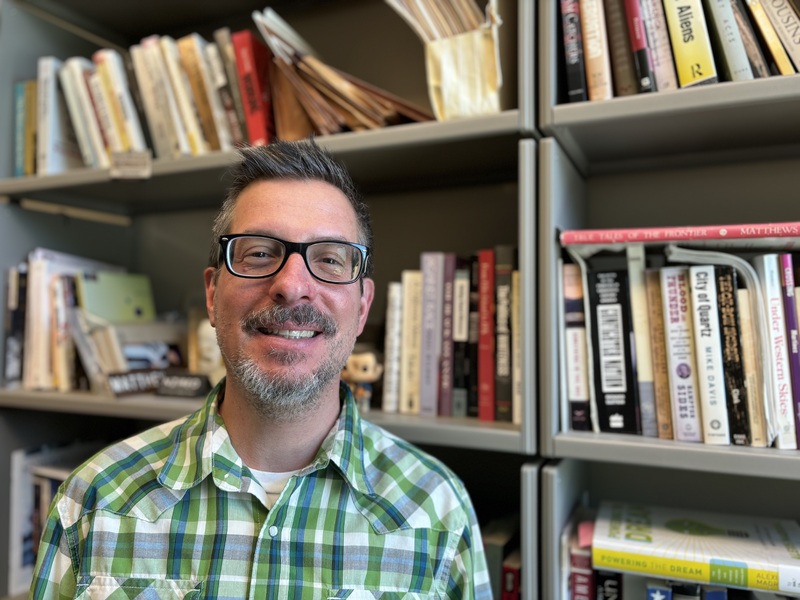-
Title
-
Matthew Basso
-
Quote
-
"We almost forget about the core of the humanities, because we feel like we’ve got to speak this market language, this vocational emphasis. But, what about making citizens? What about taking care of each other? What about recording our history and understanding our problems in a nuanced way? Shedding light?"
-
Story
-
I kind of fell for the humanities in high school, like many people. I attended a high school that didn’t offer many electives, but one class I could take was a focused course on Dante, which I ended up loving.
I then went off to Vassar, which had great humanities possibilities and a lot of intimate classroom settings and contact with faculty. I switched my major many times. I started with medieval renaissance, because of Dante, but then realized that I had to know a lot of languages to actually do well at that. I finally landed on history. I did a thesis that allowed me to deeply immerse myself in primary sources. I fell in love with trying to figure out stories and using those sources to figure out what happened. I wanted to be the detective.
I owed the Army some time due to an ROTC scholarship, but then I applied to graduate programs and received an offer. I knew nothing about graduate school. The University of Montana offered me a living stipend, and I had always wanted to learn how to fly fish.
I found a great thesis topic. I had been interested in war and society. This was the mid-1990s, and the 50th anniversary of World War II was constantly in the headlines. I became very interested in the Rosie the Riveter story. When I went looking to see if there were Rosie the Riveters in Montana, I found that there were. I found a trove of primary sources, but what jumped out to me was the men whom I’d never really thought that much about. They really were resistant to having women and people of color in the mines and smelters. I hadn’t seen that story before. I ended up writing a master’s thesis and then pursued my doctorate, writing on the same topic. It’s again a story of trying to figure out what happened through primary sources and then trying to convey that, in the classroom with students, too.
This was the beginning of a long journey with the humanities. So, what is the right approach to defend the humanities right now? Do we say, “Okay, we just need to ride this out.” Do we take a more aggressive stance? Do we try to take a middle road somewhere in between there? Over the last decade or so, it feels like one of the routes we’ve taken most, especially at universities, is trying to talk about the marketability of humanities degrees. So we think it’s important, maybe of paramount importance, to show parents and legislators that if their kids get a humanities degree they will end up with reasonable jobs. "In that, we almost forget about the core of the humanities, because we feel like we’ve got to speak this market language, this vocational emphasis. What about making citizens? What about taking care of each other? What about recording our history and understanding our problems in a nuanced way? Shedding light?
We’re in a world that feels more and more soundbite-y. Politicians have bought into that, and we have too, as a society. There’s no desire for that nuance, because you can poke holes in it. But that’s the whole idea of nuance, to poke holes in each other’s takes and to try to come up with a complex understanding that can lead to real, long-term solutions. For us, rooted in the past, we understand the patterns that history, literature, philosophy, and others show us.
-
interviewer
-
Randy Williams
-
Profession
-
Professor
-
Spatial Coverage
-
University of Montana, University of Minnesota, Vassar
-
From
-
University of Utah, American West Center


